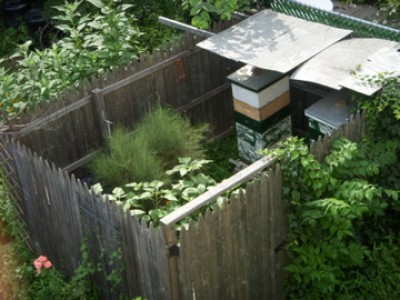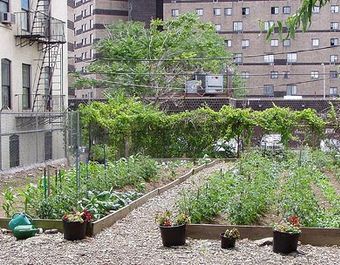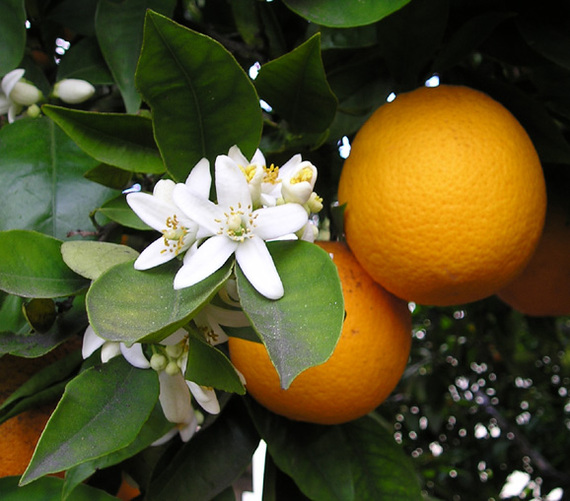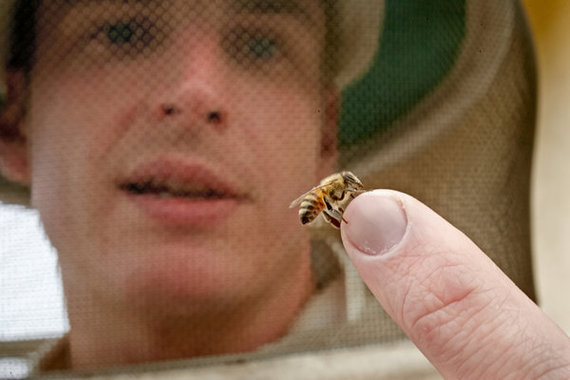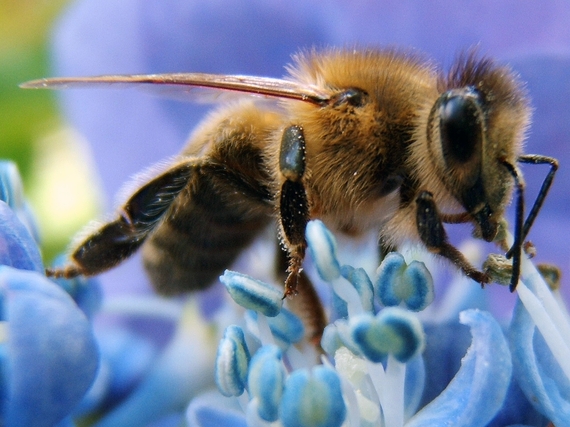This past Wednesday afternoon the Los Angeles City Council voted unanimously to conduct a study on legalizing urban beekeeping.
Healthy backyard honeybee hives are of great value and importance in our world where currently 500 billion honeybees have died prematurely over the past 6 years. Photo credit: jellypress.com
New York, Denver, Santa Monica and dozens of other cities across America have embraced backyard beekeeping. There are many good reasons why Los Angeles will very likely join with many cities around the globe in allowing honeybees a safe haven and an opportunity to pollinate urban plants, trees and throngs of food gardens.
New York City encourages its residents to grow urban gardens. Moreover, urban gardens are an excellent learning tool that introduces the importance of all bees and their role in pollination to children. "You Are What You Eat," as Dr. Victor Lindlhar's 1940 book aptly surmised. And there's no better way to know about your food than to grow your own. Photo credit: insideclimayenews.com
There are tons of diverse poison-free bee forage in an ideal climate within the city of Los Angeles to support millions of honeybees. Just like people, bees require a wide array of food sources rich in nectar (to make honey) and pollen (for its protein) to produce healthy and vibrant offspring.
The mellifluous scent of orange blossom graces Angeleons streets and backyards, and depends upon the incomparable honeybees to cross-pollinate, helping to produce exquisite, sweet bounty. Photo credit: wikepedia.com
Colony Collapse Disorder is a disease that has killed over 10 million hives or a half a trillion honeybees around the globe; it is worsening and urban bees require protection. According to Rob McFarland, co-founder of the Angeleon nonprofit HoneyLove, "Bees are in real trouble and urban beekeeping is part of the solution." In America alone our honeybees account directly for $44B in commerce, annually. Any measure undertaken to help stabilize honeybee health will ultimately bolster the U.S. economy especially in the face of climate disruption.
McFarlen is indeed correct that "The bees are already here." And so the Los Angeles City Council also passed a motion on Wednesday to explore more humane ways of removing beehives from urban settings and dwellings other than extermination.
A bee sits on the finger of Rob McFarland, who keeps a hive filled with 25,000 honeybees on the roof of his Los Angeles house. Photo credit: Damian Dovarganes / Associated Press.
The third motion the Los Angeles City Council passed supports federal protection against pesticides. This measure offers much needed momentum to reduce poisons in our state since the Sacramento-based California Department of Pesticide Regulation (DPR) agency continues to approve new bee-killing products i.e. neonicotinoids before fully evaluating their impacts.
"DPR has been saying for five years that neonicotinoids may be killing California's honeybees, and yet the agency allows more and more of these pesticides to be used each year," said Greg Loarie, an attorney for EarthJustice.
Even more concerning, Portland-based Xerces Society found that some commercial neonicotinoid products available at garden centers are 120 times higher than those applied on agricultural fields.
Honeybees are just like people we both like to dance, travel, touch, mimic one another, and we both enjoy caffeine, nicotine, voting, seeking thrills and we both get sick. The honeybees are indeed 21st century canaries in the coal mine showing us that putting 5 billion pounds of pesticides annually into the biosphere is killing it. And what we do to the biosphere, we do to ourselves. Photo credit: biologykoan.com
Do not use any pesticides in your yard. Please consider supporting this petition to strongly encourage Lowe's and Home Depot not to sell these known high concentrations of bee-killing poisons.
Earth Dr Reese Halter is a broadcaster, biologist, educator and author of The Incomparable Honeybee and the Economics of Pollination.

